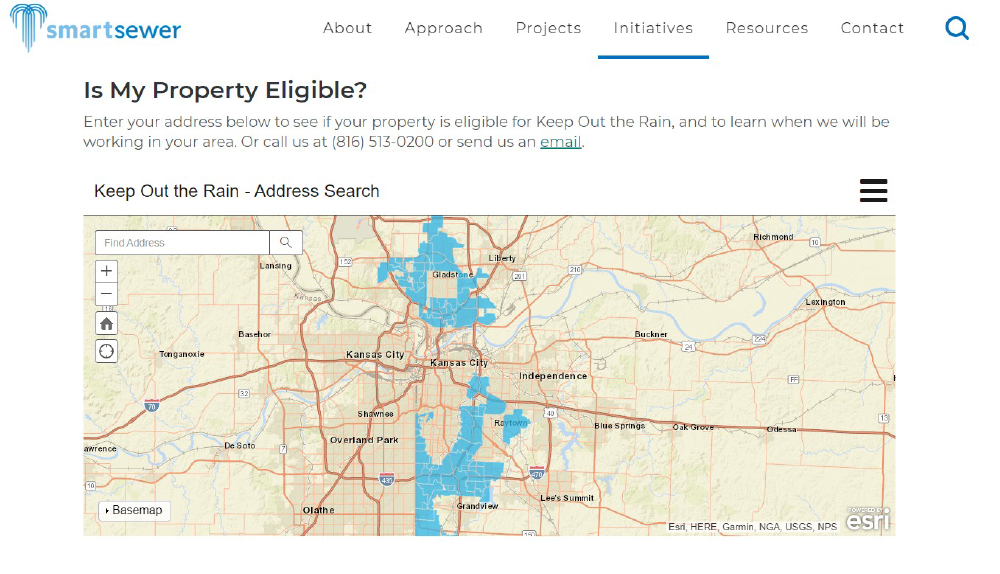Challenge
An average of 6.4 billion gallons of wastewater overflow is produced each year from rainfall in Kansas City, Missouri, creating water quality issues and impacting public health. To address the issues this massive amount of overflow was producing, the city entered into a federally mandated agreement with the Environmental Protection Agency (EPA), resulting in the $2.3 billion Smart Sewer Program, which aims to capture and treat 85% of combined sewer overflows and eliminate sanitary sewer overflows during heavy rainfall within a 30‑year period.
Alterations to sewers and residential plumbing mandated by the agreement would impact the separate sewer system in the newer parts of the city, an area covering over 300 square miles. This meant that getting a high level of voluntary participation from residents would be necessary to complete project goals. Additionally, the team would need the ability to share large amounts of data with field staff, coordinate and track the work being performed, and analyze the program’s effectiveness toward removing rainwater from the sanitary sewer system.


